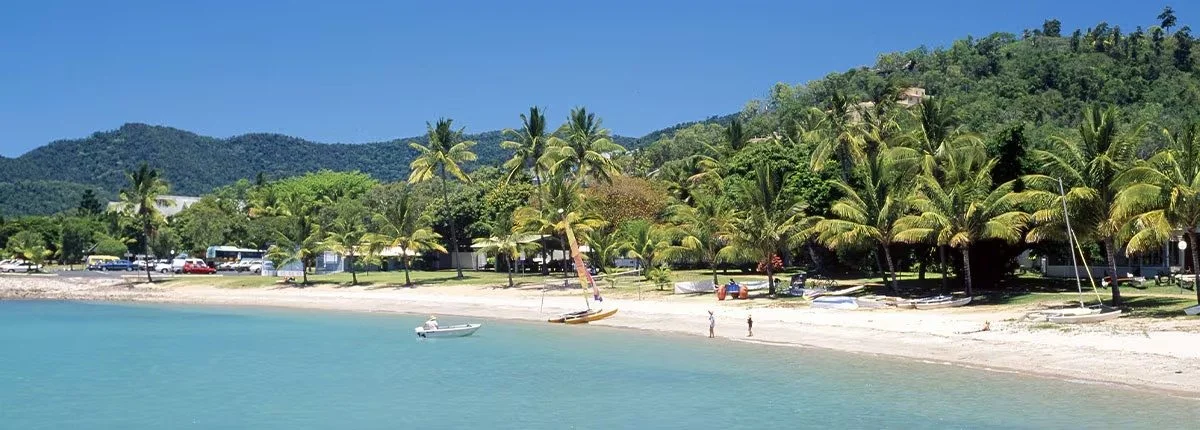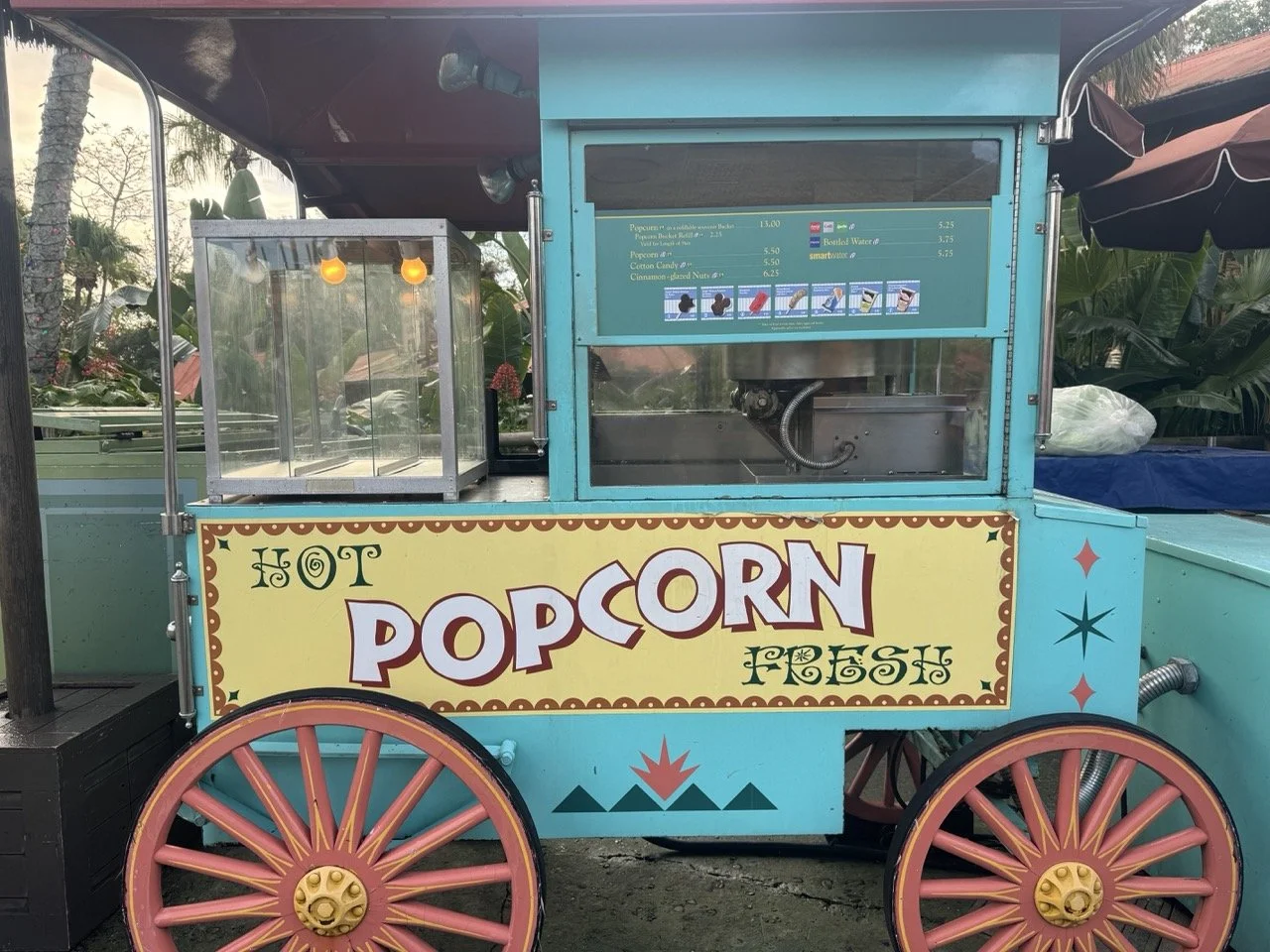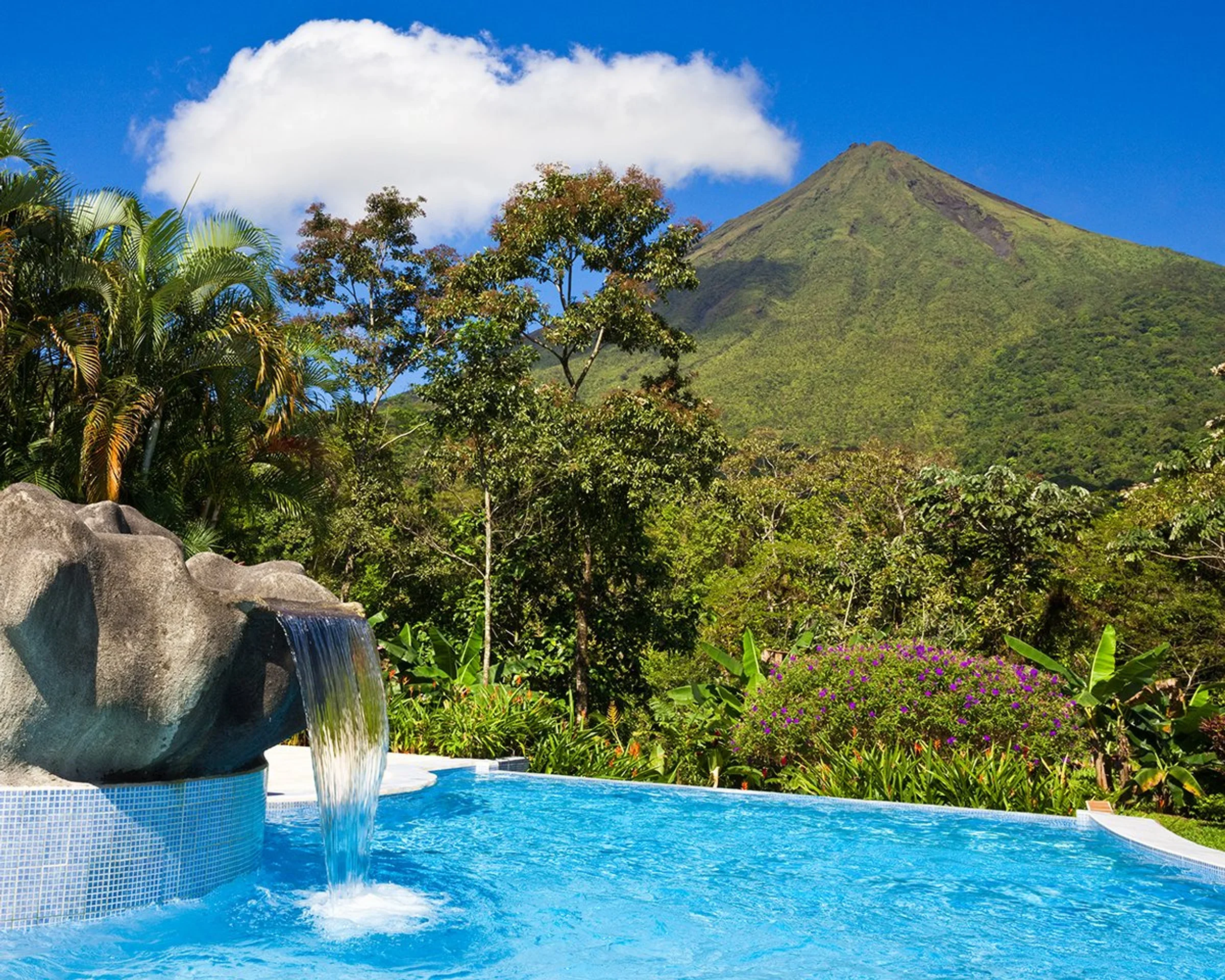How to Fast Track Your Travel Agent Career
So you want to hit the ground running as a travel agent and build a successful business faster than most? You're in the right place. The travel industry is booming right now, with demand reaching record-breaking levels as people prioritize experiences over everything else! But here's the thing – not everyone who starts in this business makes it big, and the difference between those who do and those who don't often comes down to strategy!
This guide is going to walk you through exactly how to accelerate your travel agent career using proven tactics that top earners use! We're talking about real, actionable steps that can help you build a thriving business in less time than you'd think. Whether you're brand new or already booking your first few trips, these strategies will help you level up fast!
Join us here at MainStreet Travel, we offer a Free Membership and a Travel Plus Membership for only $99! We have no annual or monthly fees and no minimum booking requirements!
Why Speed Matters in Building Your Travel Business
Let's be honest – time is money. The faster you can get your business up and running, the sooner you start earning commissions and building that reputation. According to Host Agency Review's 2024 report, full-time travel advisors in their first three to five years make around $44,000 annually on average, but mid-experience agents jump to $66,000 to $79,000. The key difference? They figured out what works and did it consistently.
The travel industry is also incredibly competitive right now. Travelers have more options than ever before, which means standing out and establishing yourself quickly gives you a huge advantage. The good news is that with the right approach, you can compress years of trial and error into months of focused action.
Join a Host Agency Right Away
Here's your first major shortcut – don't go it alone from day one. Joining a host agency is hands-down the fastest way to start your travel agent career without getting bogged down in red tape and expensive startup costs.
A host agency gives you instant access to everything you need. We're talking about IATA numbers that let you earn commissions, exclusive partnership programs with suppliers like Four Seasons and Rosewood, and booking systems that would cost thousands to set up on your own. Plus, you get training, marketing tools, and a support team that can answer your questions when you're stuck.
Think of it like this – host agencies are to travel agents what real estate brokerages are to realtors. You get the backing of a bigger company while still running your own independent business. The best part? You can start booking trips on day one while you're still learning the ropes.
When picking a host agency, look for ones that offer strong commission splits (typically 70-90% to you), robust training programs, and access to preferred suppliers. Some popular options include MainStreet Travel and Yeti Travel!
Pick Your Niche Early and Own It
Want to know one of the biggest mistakes new agents make? Trying to be everything to everyone. It sounds counterintuitive, but narrowing your focus actually helps you grow faster.
Specializing in a specific niche lets you become the go-to expert in that area. When someone needs help planning a Disney vacation, a luxury honeymoon, or an adventure tour, they want someone who really knows their stuff – not a generalist who kinda knows a little about everything.
Popular travel niches that are killing it right now include luxury travel, Disney and theme park vacations, destination weddings, cruise vacations, adventure travel, family and multigenerational trips, and accessible travel for travelers with disabilities.
The beauty of choosing a niche is that your marketing becomes way more targeted. Instead of posting generic "book your vacation with me" content, you can share insider tips about your specialty that actually get people excited. You also get better at booking those trips faster, which means more sales in less time.
Don't worry – picking a niche doesn't mean turning away other business. Many successful agents have a primary specialty but still book other types of travel when opportunities come up.
Get Certified and Keep Learning
While you don't technically need certifications to become a travel agent, getting them seriously fast-tracks your credibility and confidence.
The Certified Travel Associate (CTA) from The Travel Institute is the industry-standard entry-level certification. It covers everything from booking procedures to customer service to commission structures. Most agents complete this within three to six months, and it immediately signals to clients that you know what you're doing.
After gaining some experience, you can level up to the Certified Travel Counselor (CTC), which focuses on business management and growth strategies. This typically requires five years of experience and shows you're serious about building a sustainable business.
For cruise specialists, CLIA (Cruise Lines International Association) certifications are essential. They offer multiple levels from Certified Cruise Counsellor (CCC) all the way up to Elite Cruise Counsellor (ECC), each building on your expertise and opening doors to better supplier relationships.
But here's the real secret – successful agents never stop learning. The travel industry changes constantly with new destinations, suppliers, and regulations. Top earners dedicate time each week to supplier trainings, destination webinars, and industry events that keep them ahead of the curve.
Build Your Online Presence from Day One
Let's talk about something that can make or break your business in 2025 – your digital marketing game. If you're not visible online, you basically don't exist to most potential clients.
Your website needs to be more than just a digital business card. It should be a content hub that attracts potential clients through search engines. Write blog posts about popular destinations, create destination guides, share travel tips, and answer common questions people search for. Each piece of content becomes a long-term traffic source that brings in leads while you sleep.
Social media is equally important, but you need to be strategic about it. Instagram is perfect for showcasing beautiful destinations through photos and reels. Facebook works great for building community and sharing travel deals. TikTok is exploding for travel content right now with short, engaging videos that can go viral.
The key is consistency and authenticity. Don't just post pretty pictures – share real stories, insider tips, and helpful information that demonstrates your expertise. Show behind-the-scenes glimpses of your FAM trips, share client testimonials, and engage with people who comment on your posts.
And here's a pro tip – start an email list from day one. Email marketing remains one of the most powerful tools for staying in touch with past clients and nurturing leads. Send regular newsletters with travel inspiration, special deals, and helpful tips that keep you top of mind.
Leverage Your Personal Network Strategically
Your fastest path to your first clients is through people who already know and trust you – friends, family, colleagues, and acquaintances.
But here's the thing – you need to approach this strategically, not desperately. Don't just blast everyone you know with "Hey, I'm a travel agent now, book with me!" Instead, share your journey on social media, post about interesting trips you're learning about, and offer value first.
Let people know what you're doing in a natural way. Share a post about a great resort you discovered during training. Talk about an amazing deal you found. Show excitement about your new career. When people see you're knowledgeable and passionate, they'll naturally think of you when they're ready to book.
Also, don't be afraid to ask for referrals from happy clients. Word-of-mouth marketing is still the number one way travel agents get new business. Create a simple referral program that rewards people for sending friends your way – maybe a gift card or a discount on their next booking.
Take Advantage of FAM Trips
Familiarization trips, or FAM trips, are one of the coolest perks of being a travel agent and an absolute game-changer for fast-tracking your career.
These are heavily discounted or complimentary trips organized by suppliers, tourism boards, cruise lines, and resorts specifically for travel agents to experience their products firsthand. Think of them as educational opportunities that happen to involve travel.
Why are FAM trips so valuable? First, there's no substitute for personal experience. When you've actually stayed at a resort, eaten at the restaurants, and walked the beach, you can sell it way more effectively than someone just reading a brochure. You can answer specific questions, make personalized recommendations, and speak with genuine enthusiasm.
Second, FAM trips give you incredible content for your marketing. Take photos, shoot videos, and document your experience. Share this content on social media and your website to show potential clients you're the expert who's actually been there.
Third, you'll network with other travel agents and supplier representatives, building relationships that can benefit your business for years. You never know when a contact you made on a FAM trip will help you solve a client issue or get special perks.
To find FAM trips, check with your host agency, join supplier programs, follow tourism boards on social media, and connect with other agents who share opportunities.
Focus on High-Value Bookings
If you want to make serious money faster, you need to think strategically about what you're booking. Not all trips are created equal when it comes to commission potential.
Luxury travel packages, safaris, river cruises, destination weddings, group trips, and customized itineraries typically offer higher commissions than basic hotel bookings or budget packages. A single luxury vacation can earn you as much commission as booking five budget trips.
This doesn't mean ignoring smaller bookings completely, but it does mean actively working to upsell clients when appropriate and positioning yourself to attract higher-end clientele. Offer premium experiences, suggest room upgrades, add excursions and transfers, and recommend travel insurance to increase the overall value of each booking.
Another smart strategy is building multiple revenue streams. Charge planning fees for complex itineraries, offer consultation services, sell travel insurance (which earns you additional commission), and organize your own group trips where you can mark up pricing.
Corporate travel management is another lucrative niche. Companies need comprehensive travel solutions and are willing to pay for reliable service. If you can land even one or two corporate accounts, that provides steady income and repeat business.
Use Technology to Work Smarter
The right tools can save you hours every week and help you serve more clients without burning out.
A good CRM (Customer Relationship Management) system is essential for tracking leads, managing client information, and staying organized. Popular options for travel agents include monday CRM, Zoho CRM, and travel-specific platforms like Travefy. These systems help you automate follow-ups, track commissions, and keep all your client data in one place.
Booking platforms and GDS (Global Distribution Systems) access through your host agency streamline the actual reservation process. Learning to navigate these systems efficiently is key to completing bookings faster.
Email marketing tools like Mailchimp or Constant Contact help you stay in touch with past clients and nurture leads through automated campaigns. Set up welcome sequences for new subscribers, birthday emails, and regular newsletters without having to manually send each one.
Social media scheduling tools like Later or Planoly let you batch-create content and schedule posts in advance, maintaining consistency without spending hours each day on social media.
Build Strategic Supplier Relationships
Your relationships with suppliers – hotels, cruise lines, tour operators, and destination management companies – directly impact your ability to serve clients well and earn better commissions.
Start by identifying preferred suppliers in your niche. If you specialize in luxury travel, build relationships with high-end hotel chains and luxury tour operators. If you focus on cruises, develop strong connections with cruise line BDMs (Business Development Managers).
Attend industry events, participate in supplier trainings, complete certification programs offered by suppliers, and communicate regularly with your sales reps. When suppliers know you're actively promoting their products, they're more likely to offer you better commission rates, exclusive perks for clients, and help when you need it.
Many suppliers offer tiered partnership programs where higher sales volumes unlock better benefits. Ask your host agency about their preferred supplier relationships and how you can leverage them.
Master the Art of Client Service
Fast-tracking your career isn't just about getting clients quickly – it's about turning those clients into raving fans who come back again and again and refer everyone they know.
Exceptional service starts with really listening to clients and understanding what they want. Ask thoughtful questions about their travel preferences, past experiences, and what they hope to get from their trip. The more you understand them, the better you can match them with the perfect vacation.
Be proactive in your communication. Keep clients updated throughout the planning process, send helpful reminders about documentation and packing, and check in with them during their trip to make sure everything's going smoothly.
Go above and beyond whenever possible. Surprise clients with room upgrades you negotiated, send a welcome amenity to their hotel, or provide a detailed custom guide to their destination. These little touches create memorable experiences that lead to referrals.
Handle problems quickly and professionally. When issues arise (and they will), being responsive and solution-oriented builds trust and loyalty even in difficult situations.
Set Goals and Track Your Progress
You can't improve what you don't measure. Successful agents set clear goals and consistently track their progress.
Start with specific, measurable targets. Instead of "I want to grow my business," say "I want to complete 15 bookings this quarter totaling $75,000 in sales." Break down annual goals into quarterly and monthly targets so you know exactly what you're working toward.
Track key metrics like number of leads, conversion rate from lead to booking, average booking value, commission earned, and client retention rate. This data shows you what's working and where you need to improve.
Schedule regular check-ins with yourself to review your progress. Monthly reviews help you adjust your strategy before you get too far off track.
Avoid Common Mistakes That Slow You Down
Let's talk about some pitfalls that can seriously derail your momentum.
Don't expect overnight success. Building a sustainable travel business takes time, even when you're doing everything right. Treat your first year as a learning and foundation phase.
Don't try to do everything yourself. Invest in training, join communities of other agents, and ask for help when you need it. Trying to figure everything out alone wastes time and leads to frustration.
Don't neglect legal and compliance requirements. Make sure you understand your state's regulations, have proper insurance coverage, and use proper contracts. Cutting corners here can create huge problems down the road.
Don't give up when things get hard. The agents who succeed are the ones who push through the challenging early months and stay consistent even when results come slowly.
Frequently Asked Questions
How long does it really take to become a travel agent?
You can technically start booking travel on day one when you join a host agency. Most agents complete initial training programs in four to six weeks, but building a profitable business typically takes three to twelve months of consistent effort.
Do I need a college degree to be a travel agent?
No, you don't need a formal degree. Most successful agents have high school diplomas or equivalent and complete industry certifications and training programs through host agencies or organizations like The Travel Institute.
How much money can travel agents actually make?
Income varies widely based on experience and effort. New full-time agents in their first few years average around $44,000 annually, mid-experience agents earn $66,000-$79,000, and top performers make six figures or more.
Is becoming a travel agent expensive to start?
Not if you join a host agency. Startup costs can be as low as a few hundred dollars for training and marketing materials. Host agencies cover the expensive accreditations and booking systems.
Can I be a travel agent part-time?
Absolutely. Many successful agents start part-time while keeping their full-time job. You have complete flexibility to set your own hours and grow at your own pace.
What's the difference between using a travel agent versus booking online?
Travel agents provide personalized service, expert advice, exclusive perks, and handle problems when they arise – things automated booking sites can't offer. Agents often find better deals through supplier relationships and can save clients time and stress.
Do I have to travel a lot to be a good travel agent?
While personal travel experience helps, it's not required. FAM trips and supplier trainings provide destination knowledge, and you can specialize in destinations you're passionate about without having visited everywhere in the world.
What if I don't have any clients to start with?
Everyone starts with zero clients. Begin with your personal network, build your online presence, join local networking groups, and provide exceptional service that generates referrals. Consistent marketing brings new leads over time.
How do I compete with online booking sites?
Focus on what makes you valuable – personalized service, expert knowledge, time savings for clients, advocacy when problems occur, and exclusive perks you can arrange through supplier relationships. Position yourself as a trusted advisor, not just a booking service.
What technology tools do I really need?
At minimum, you need a CRM system for managing clients, email marketing software, a professional website, and access to booking platforms (usually provided by your host agency). As you grow, you can add social media scheduling tools and automation.
Your Next Steps to Fast-Track Success
Building a thriving travel agent career faster than average is absolutely possible when you follow proven strategies and stay focused. The key is combining smart business decisions – like joining a host agency and choosing a niche early – with consistent execution on marketing, client service, and continuous learning!
Remember that success in this business comes from helping people create amazing experiences. When you genuinely care about your clients and put in the work to become an expert in your specialty, the income and growth follow naturally.
The travel industry is booming in 2025 and beyond, with travelers actively seeking expert guidance they can trust. There's never been a better time to launch or accelerate your travel agent career. The opportunity is there – now it's up to you to grab it and run with it!
Start with one action today. Join a host agency, pick your niche, complete a training course, or post your first piece of travel content online. Small consistent actions compound into massive results over time. Your future successful travel business is waiting for you to build it!















